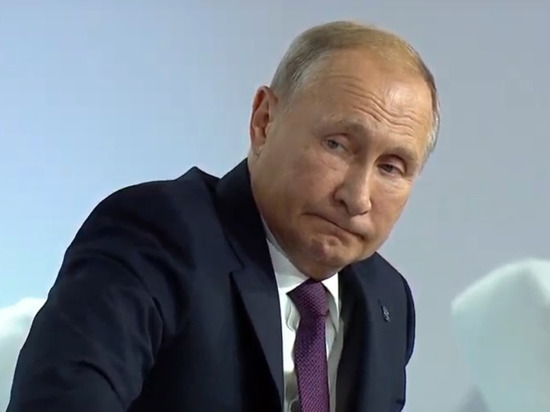
Of course, the press conference would not be the one of the Putin’s style if his communication with the media and the statements made there did not achieve the greatest public impact.
A great deal has been said; the Russian leader answered various questions. However, the most important thing was how he evaluated the modern international agenda and, accordingly, Russia’s role in it. Since, apparently, a big number of developments have taken place around the world over the past year, ranging from the outbreak of the coronavirus pandemic to the victory of Joseph Biden in the United States. Therefore, the foreign policy aspects and reaction from the Kremlin to them were of great interest. After all, it was often the case in history, that any opinion expressed by the Russian president, including the international agenda, might become a reality.
Thus, answering the BBC correspondent’s question whether Russia considers itself responsible for the resumption of the Cold War, Putin blamed Western countries for the deterioration of relations, noting that compared to them, Russians are “nice and fluffed”. Explaining his position, Putin stressed that the Russian side “acted to liberate from a certain Soviet dictatorship the countries and peoples willing to develop independently”. He also reiterated the constant mantra that the North Atlantic Alliance has expanded and its infrastructure is approaching Russia’s borders.
Doesn’t it seem familiar? Yes, Putin’s narratives are similar to those from his notorious “Munich Speech” in 2007, when the Russian leader stated that NATO was approaching with its advanced forces to Russian state borders and that the unipolar model was not only unacceptable to the modern world but totally impossible.
Putin’s message in Munich was made for some reason. After all, after the events of 9/11, the unipolar world was relegated to the past, and Russia, beginning to “struggle to its feet” demanded to take its place in the geopolitical arena.
However, despite the war on terror and other challenges of the 2000s, the collective West continued to hold leadership positions. Moreover, the Alliance, as the flagship of the free world, continued its expansion to the east. In addition, negotiations started over granting Ukraine and Georgia a NATO Membership Action Plan (MAP), which was painfully taken by Moscow.
Little more than a year later, the “Munich speech” turned into a real “Bucharest ultimatum” when Vladimir Putin threatened the US President George W. Bush at the NATO summit in the Romanian capital that Russia could start the seizure of the Crimea and Eastern Ukraine (which he referred to as the understate) if the latter joined the Alliance.
Unfortunately, the West swallowed the Russian bluff and provided neither Ukraine, nor Georgia with the MAP. The consequences did not take long. They are well known: the attack on Sakartvelo, the occupation of the Crimean peninsula, the outbreak of war in the Donbass. Moscow has received everything that suits Russia in its relations with its neighbors – neither integration, nor peace (an analogue of the Trotskyi concept of “neither war, nor peace”).
The situation has been almost identical lately. However, this time, in addition to the war on terror, the Western world is also fighting the pandemic. Nevertheless, NATO is continuing its enlargement process, which is proved by the accession of Northern Macedonia to the Alliance and granting Ukraine the status of NATO’s enhanced capabilities partner, returning to active negotiations on the MAP.
Signing the Enhanced Defense Cooperation Agreement on August 15 by the United States and Poland threw more gas on the Russian neo-imperial fire. In particular, this Agreement provides increased US military contingent in Poland. All this is happening on the background of mass protests in Belarus, which is (so far) the western stronghold of the “Russian world” bordering Poland, which in case of a hypothetical clash between NATO and the CSTO has every chance to become a battlefield of two military-political blocs.
In view of the above, Moscow began to push the anti-Western rhetoric with renewed vigor which again contain the intended ultimatum. And, by the way, this was not only at the above-mentioned Putin’s press conference.
For example, back in May, a spokesman for the Russian president, Dmitry Peskov, said that the deployment of the US military base on Polish territory would lead to appropriate actions by Russia. According to the Kremlin spokesman, such decisions are the matter of sovereignty of any country, but will have obvious consequences for the security atmosphere on the continent.
And in June, Peskov said that relations between Russia and Poland are “at the lowest level ever”. He noted that Poland itself is not dangerous for Russia. However, as the state willing to provide its territory to the third countries or NATO, it can pose a threat. The Russian president’s spokesman also stressed that the “drift of NATO’s military infrastructure” toward Russian borders is forcing Moscow to take measures to “ensure the country’s security”.
It would not be an exaggeration to say that the Kremlin’s next game makes the countries of the Eastern European region, even though most of them are members of NATO and the European Union, think harder about their security. After all, the precedents have already taken place – when a certain kind of frivolity and flexibility had consequences to the West.
At the current stage, it is important to understand how the Biden administration will respond to new threats. The signals from Washington seem encouraging. However, given the difficult situation in both the United States and the world, where the post-Trump transition period multiplied by the coronavirus pandemic, could last for months (if not more), it is difficult to predict with certainty whether Moscow will take advantage of the moment or not.
Anyway, the countries of the Baltic-Black Sea region, including Ukraine, should be prepared for any scenario. After all, as the harsh reality shows that nothing good can come from the “nice and fluffed” Russia.